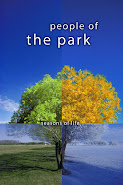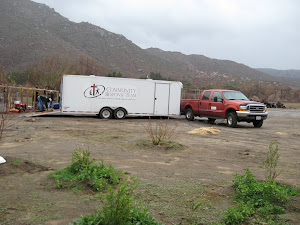Subscribe to:
Post Comments (Atom)
skip to main |
skip to sidebar

Panama City, Panama





San Diego Fire Relief Trip 2

San Diego Fires Releif Trip 1
The Davis Park Community Response Team is a ministry of the Davis Park Church of Christ, Modesto, CA. The Community Response Team responds to people in need and provides compassion one person at a time.
Tower of the Americas
Panama City, Panama
Ike Relief Trip - Bridge City, TX



The People of the Park is a book that tells the story of life transformation through relationship with Jesus Christ. In this book seven members of the Davis Park Church of Christ tell their personal stories of how their life has been affected by their relationship with Jesus Christ. These stories are real, the people are real and the mercy and grace they have received is real.
Books are available for free from the Davis Park Church of Christ, no shipping and handling charges will apply. Contact us today for your copy.
Phone-209.522.7226
e-mail us @ davisparkcoc@sbcglobal.net
Books are available for free from the Davis Park Church of Christ, no shipping and handling charges will apply. Contact us today for your copy.
Phone-209.522.7226
e-mail us @ davisparkcoc@sbcglobal.net
The Weather Channel: National Weather Outlook
Kyle Mission Trip 2008

Rincon Goatshed Project

San Diego Fire Relief Trip 2
Black Canyon Road Clean- up

San Diego Fires Releif Trip 1
RSS Reader
Contributors
Blog Archive
- ► 2006 (110)
21 comments:
what?
What did you mean by what? Did you mean WHAT or what?
Whatever!
Porque? Que quires decir?
adv.
How much; in what respect; how: What does it matter?
conj.
That: I don't know but what I'll go.
interj.
Used to express surprise, incredulity, or other strong and sudden excitement.
Chiefly British. Used as a tag question, often to solicit agreement.
idioms:
what for Informal.
A scolding or strong reprimand: The teacher gave the tardy student what for.
what have you
What remains and need not be mentioned: a room full of chairs, lamps, radios, and what have you.
what if
What would occur if; suppose that.
What does it matter if.
what it takes
The necessary expertise or qualities needed for success: She has what it takes to be a doctor.
what's what Informal.
The fundamentals and details of a situation or process; the true state or condition.
what with
Taking into consideration; because of: “I've often wondered why some good crime writer . . . hasn't taken up with New Orleans, what with its special raffishness, its peculiar flavor of bonhomie and a slightly suspect charm” (Walker Percy).
what (hwŏt, hwŭt, wŏt, wŭt; hwət, wət when unstressed)
pron.
Which thing or which particular one of many: What are you having for dinner?
What did she say?
Which kind, character, or designation: What are these objects?
One of how much value or significance: What are possessions to a dying man?
That which; the thing that: Listen to what I tell you.
Whatever thing that: come what may.
Informal. Something: I'll tell you what.
Nonstandard. Which, who, or that: It's the poor what gets the blame.
adj.
Which one or ones of several or many: What college are you attending?
You should know what musical that song is from.
Whatever: They soon repaired what damage had been done.
How great; how astonishing: What a fool!
USAGE NOTE When what is the subject of a clause, it takes a singular verb if the word or phrase that completes the sentence (the complement) is singular, as in I see what seems to be a dead tree. It is plural if a plural noun or noun phrase completes the sentence, as in He sometimes makes what seem to be gestures of reconciliation. • Clauses with what as either subject or object may themselves be the subject of a sentence, and sometimes it is difficult to decide whether the verb of the main clause should be singular or plural. When the what in the what-clause is the object of the verb and the complement of the main clause is singular, the main verb is always singular: What they wanted was a home of their own; when the complement of the main sentence is plural, the verb is most often plural: What American education needs are smaller classes, though one also encounters sentences such as What the candidate gave the audience was the same old empty promises. When what is the subject of a what-clause that is the subject of a main clause, there is greater variation in usage. When the verb of the what-clause and the complement of the main clause are both plural or both singular, the number of the verb of the main clause generally agrees with them. When the verb in the what-clause is singular and the complement in the main clause is plural, one finds both singular and plural verbs being used. Sentences similar to both of the following are found in respected writers: What drives me crazy is her frequent tantrums; What bothers him are the discrepancies in their accounts. When the complement of the main clause consists of two or more nouns, the verb of the main clause is generally singular if the nouns are singular and plural if they are plural: What pleases the voters is his honesty and his willingness to take on difficult issues; On entering the harbor what first meet the eye are luxurious yachts and colorful villas. Occasionally the choice of a singular or plural verb may be used to convey a difference in meaning. In the sentence What excite him most are money and power, the implication is that money and power are separable goals; in What excites him most is money and power, the implication is that money and power are inextricably bound together. See Usage Notes at which.
Translations for: What
Dansk (Danish)
pron. - hvilken, hvilket, hvad for en, sikke noget, hvad, hvad der, noget
det. - den, der, hvad der
adv. - hvad, i hvilken grad
adj. - hvilken, hvilket, hvad for en, noget
conj. - hvilken
int. - den som, det som
Nederlands (Dutch)
wat, welk, datgene, wat dan ook, hoe veel, wat!
Français (French)
pron. - qu'est-ce qui, qu'est-ce que, que, quoi, ce que, ce qui, combien, quoi ?, combien ?, comment ?, n'est-ce-pas/non ? (question tag)
det. - quel/quelle, quel/quelle (excl), tout ce que, le peu que
adv. - combien, dans quelle mesure, comment, pourquoi, pour quelle raison
adj. - lequel, quel, ce que, ce qui, quel/quelle (excl)
conj. - qui, que (fam)
int. - quoi (excl), comment (excl)
Deutsch (German)
pron. - was, welche, welcher, welches, wieviel, was für
n. - Was
adj. - welche, welcher, welches
adv. - was, was für
int. - Was!, Wie?
conj. - soweit
det. - das was, welcher
Ελληνική (Greek)
pron. - τι;, ό, τι, ποιος;, (τόσος) όσος, αυτός που, εκείνος που, όλα όσα, πόσο;
n. - κάτι (τι), ορισμένη ποσότητα
adj. - του (οποίου) είδους
adv. - τι;
int. - τι;, πώς;
conj. - ότι, πως
Italiano (Italian)
ciò che, che, quale, il che, come, quanto, che!, Che cosa?
Português (Portuguese)
pron. - quê? (interrog.), que, o (relat.)
adj. - que, qual (interrog.)
adv. - em que
int. - quê!
conj. - tanto
Русский (Russian)
какой, сколько, что за, каков, что, кто, который, тот
Español (Spanish)
pron. - lo que, el que, los que
det. - lo que, cuál, cuáles, qué, ¿cómo?, ¿cuánto?
adv. - cuánto, cuál
adj. - lo que, qué, qué tal, qué más, el que, todo lo que
conj. - lo que, cuál, cuáles, qué, ¿cómo?, ¿cuánto?
int. - cuál, qué, qué cosa, cómo
Svenska (Swedish)
pron. - vad, vilken, vad som
adj. - vilken
adv. - hur, vad
int. - vilken
conj. - den som, det som
العربيه (Arabic)
(ضمير) ما, الذي (صفه) كم (ظرف) ماذا (نداء) يا له من (حرف عطف) أي
עברית (Hebrew)
pron. - מה, כמה, מה ש-, הדבר ש-
det. - מה, איזה, איזו, מה ש-, הדבר ש-
adv. - באיזו מידה?
adj. - איזה, איזו, אילו, אילה
conj. - ככל (מיושן)
int. - מה! (קריאת השתוממות)
The Web Hypertext Application Technology, or WHAT, is a community of people interested in evolving HTML and related technologies.
"What you talking about Willis"
This is "what" Jesus would be doing; loving the lost and helpless.
"What an awesome God!"
Who
Has
Asked
This
W.H.A.T.
Wacky Hilltop Activities Team
Whaz up?
What is the big deal with what?
I still haven't found WHAT I'm looking for.
U2
Please explain to us the parable of "what".
What can we say about what that hasn't already been said?
What a day of rejoicing that will be...when we all see Jesus, we'll sing and shout the victory.
WHAT's a ghost's favorite dinner?
Spookhetti
WHAT's the speed limit in Egypt?
60 Niles an hour
WHAT stopped the two elephants from going for a swim on a hot day?
They only had one pair of trunks between them.
WHAT's covered in feathers and cracks jokes?
A comedi-hen.
Post a Comment